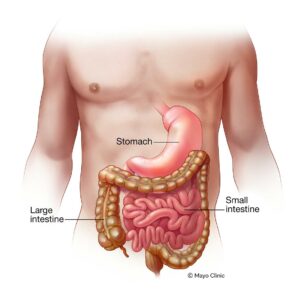Constipation is commonly accompanied by pain, making it essential to address the discomfort associated with this condition. Introducing relief measures for constipation and pain is crucial for improving overall well-being and easing discomfort.
Table of Contents
Fiber-rich Diet
One of the best ways to relieve constipation and reduce pain is by following a fiber-rich diet. Including fruits and vegetables in your meals can help provide essential nutrients while promoting regular bowel movements. These foods are rich in dietary fiber, which adds bulk to the stool and helps it move through the digestive system more easily.
In addition to fruits and vegetables, it is important to include whole grains in your diet. Whole grains such as whole wheat bread, brown rice, and oats are excellent sources of fiber that can aid digestion and prevent constipation. They also provide essential vitamins and minerals that support overall gut health.
By incorporating a fiber-rich diet filled with fruits, vegetables, and whole grains, you can alleviate constipation and reduce pain. It is important to stay hydrated and engage in regular physical activity to further enhance digestive health.
Stay Hydrated
One effective way to alleviate constipation and reduce pain is to drink plenty of water throughout the day. Staying hydrated is crucial for maintaining regular bowel movements as it helps soften the stool and promotes smoother digestion. Aim to drink at least 8 to 10 glasses of water daily.
Avoid excessive consumption of caffeine and alcohol as they can have a dehydrating effect on the body, making constipation worse. Instead, opt for herbal teas and infused water to increase fluid intake without the negative impact.
By incorporating these habits into your daily routine, you can help keep your digestive system running smoothly and reduce the discomfort associated with constipation. Remember to prioritize hydration and make it a habit even beyond the presence of symptoms.
Regular Exercise
Constipation can be a source of significant pain and discomfort. One way to alleviate this issue is by incorporating regular exercise into your routine. Engaging in physical activities like walking or jogging can stimulate your bowel movements and help relieve constipation. Additionally, practicing yoga poses that aid in bowel movements can also be beneficial. Some yoga poses, such as the wind-relieving pose or the bridge pose, can help stimulate the digestive system and promote regularity. Remember to consult with a healthcare professional before starting any new exercise program, especially if you have underlying health conditions. By incorporating regular exercise and specific yoga poses into your routine, you can help alleviate constipation and reduce pain and discomfort.

Credit: www.medicalnewstoday.com
Over-the-counter Laxatives
Over-the-counter laxatives can be used as a solution for constipation and pain relief. However, it is important to note that before using any laxatives, you should always consider consulting with your doctor. Your doctor will be able to recommend the appropriate type and dosage of laxative that suits your specific needs.
Mild laxatives are often recommended first and should be used as directed by your doctor. While using laxatives, it is important to be aware of potential side effects. Some common side effects of laxatives include stomach cramps, diarrhea, and electrolyte imbalance. If you experience any severe or persistent side effects, it is important to seek medical attention immediately.
Herbal Remedies
Constipation and pain can be quite discomforting, but there are a number of herbal remedies that can help alleviate these symptoms. One such remedy is ginger tea, which is known for its digestive benefits. The compounds in ginger help stimulate the digestive system, promoting proper bowel movements and relieving constipation. Another effective remedy is peppermint tea, which has antispasmodic properties that help relax the muscles of the gastrointestinal tract and relieve pain. These herbal teas can be easily prepared by steeping fresh ginger or peppermint leaves in hot water for a few minutes. However, it’s important to note that the effectiveness of herbal remedies may vary from person to person, so it’s always advisable to consult a herbalist for personalized recommendations based on your specific condition and medical history.
Lifestyle Changes
Establishing a consistent bowel routine can be effective in managing constipation and pain. Regularly setting aside a specific time each day to try and have a bowel movement can help regulate the digestive system. It is important to listen to your body and allow yourself enough time to fully evacuate. Additionally, managing stress levels through relaxation techniques such as deep breathing exercises, yoga, or meditation can also have a positive impact on bowel movements. Stress and anxiety can contribute to constipation, so finding ways to unwind and relax can help alleviate symptoms.
Seeking Medical Assistance
Severe or chronic constipation can be a cause for concern and may require medical intervention. It is important to know when to consult a healthcare professional. If you experience any of the following symptoms, it is advisable to seek medical advice:
- Unrelenting constipation that lasts for more than a few weeks
- Severe abdominal pain or cramping
- Blood in the stool
- Unexplained weight loss
- Changes in bowel habits accompanied by other symptoms
Consulting a healthcare professional will allow them to evaluate your condition and determine the best course of action. They may suggest lifestyle changes, dietary modifications, or prescribe medications suitable for your specific needs. In some cases, additional tests or further evaluation may be required to identify any underlying causes of constipation. Remember, seeking timely medical assistance can help alleviate your symptoms and improve your overall well-being.
Frequently Asked Questions For Constipation And Pain
Why Does Constipation Cause Pain?
Constipation can cause pain because when stool builds up in the intestines, it can put pressure on the surrounding nerves and tissues. This pressure leads to discomfort and pain in the abdominal region.
How Can I Relieve Constipation Pain?
To relieve constipation pain, you can try increasing your fiber intake, drinking plenty of water, and engaging in regular physical activity. These measures help to soften the stool and promote bowel movements, reducing pain and discomfort.
When Should I Seek Medical Help For Constipation Pain?
If you experience severe and persistent abdominal pain, blood in your stool, or if constipation persists for more than a few weeks, it is advisable to seek medical help. These could be signs of an underlying condition that requires further evaluation and treatment.
Can Constipation Cause Lower Back Pain?
Yes, constipation can cause lower back pain. When the intestines become impacted with stool, it can create pressure on the surrounding nerves, including those connected to the lower back. This pressure can lead to radiating pain in the lower back region.
Conclusion
Constipation can cause significant pain and discomfort in daily life. By understanding its causes and implementing appropriate lifestyle changes, such as increasing fiber intake, staying hydrated, and exercising regularly, individuals can alleviate constipation symptoms and reduce pain. It is essential to prioritize overall digestive health for improved well-being and quality of life.
Remember to consult a healthcare professional for personalized advice and treatment options.








